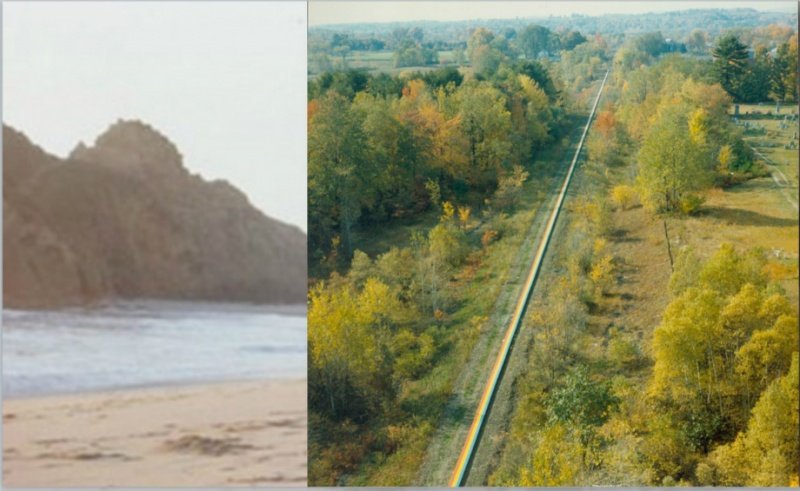Country:
Categories:

Benjamin H. Bratton presents a talk from his new three-part series Quote Unquote Design, held 2–5 May 2018 at The Bartlett School of Architecture (2 May), Goldsmiths, University of London (3 May) and Institute of Contemporary Arts (4 May). Response and audience Q&A led by Helen Hester.
The rise of ethno-nationalist populism is a global phenomenon with global causes. Yet, in each case, locals either blame or congratulate themselves for their unique failures or accomplishments. From Manila to Milwaukee, we see the same voting patterns of urban, highly educated cosmopolitans versus rural, less educated monoculturalists wanting only to preserve their own national culture. Although globalisation delinked sovereignty from geography in many capacities, we are still dealing with the vestiges of 18th-century phenomena at a time when city-states seem decisively detached from their national hosts. For those from ‘District 13’ in our real-life Hunger Games, the city may be seen as a source of arbitrary power, and in this way, urbanisation itself becomes a focus of populist backlash.
Now mid-Trump and pre-Who Knows What, we wonder who will design what and how that directly addresses our circumstances. Idiocratic global politics have thrown definitions of reality into question, including the ‘future’ in design futures. Are we designing for Wakanda or Mad Max – or both? It does not, however, change the reality of our systems-scale design problems. While there are many reasons to be suspicious of those who challenge ‘the real’, we should do the same for those who frivolously use ‘the future’ as an alibi. Should futurity be re-conceived?
In this talk, writer Benjamin H. Bratton discusses topics of planetary computation in relation to platform economics, public data and private data, the futile complicity of utopian/dystopian narratives, culture after Peak Pitchfork, multipolar hemispherical stacks and what counts, should be counted and be accountable as we sprint or slouch toward the post-Anthropocene.
Benjamin H. Bratton is a writer whose work spans philosophy, design and computer science. He is Professor of Visual Arts at the University of California, San Diego. He is also Program Director of the Strelka Institute of Media, Architecture and Design in Moscow, a Professor of Digital Design at The European Graduate School in Saas-Fee and Distinguished Visiting Faculty at The Southern California Institute of Architecture in Los Angeles.
In The Stack: On Software and Sovereignty (MIT Press, 2016), Bratton outlines a new theory for the age of global computation and algorithmic governance. He proposes that different genres of planetary scale computation such as smart grids, cloud platforms, mobile apps, urban software, IoT, AI and automation can be seen as parts of a coherent whole – a computational infrastructure and new governing architecture. His current research project Theory and Design in the Age of Machine Intelligence surveys the unexpected and uncomfortable design challenges posed by AI from machine vision to synthetic cognition and sensation and the macroeconomics of robotics to everyday geo-engineering.
Quote Unquote Design
Alphaville & the City Layer: Sensing, Sensibility and Exceptions
Auditorium at Here East The Bartlett, 2 May, 6:30pm
We need better models of AI, so that we can create better models for what AI should do. Instead of creating AI in a black box or a petri dish, cut off from the world, we should consider synthetic sense systems and cognition at urban scale. This presentation addresses the parameters of AI’s unexpected creativity, cruelty and how these cacophonous orchestras of automation are forming across uneven landscapes.
The Deep: Learning, Time, State, Ecology
Professor Stuart Hall Building LG.02, Goldsmiths, 3 May, 6:30pm
This lecture considers the role and limits of aesthetics used for modelling complex systems that operate beyond human intuition. Bratton bridges deep time, deep learning, deep ecology and other deep states concerning the emergence of intelligence from material complexity, post-Turing test models of human/AI interaction, synthetic sense systems at urban scale, design for planetary governance and gradient citizenships, and the coupling or decoupling of past, present and future foundations.
Presented in partnership with The Bartlett School of Architecture and Departments of Art and Visual Cultures, Goldsmiths, University of London
6.30pm
The Mall
St James's
SW1Y 5AH

